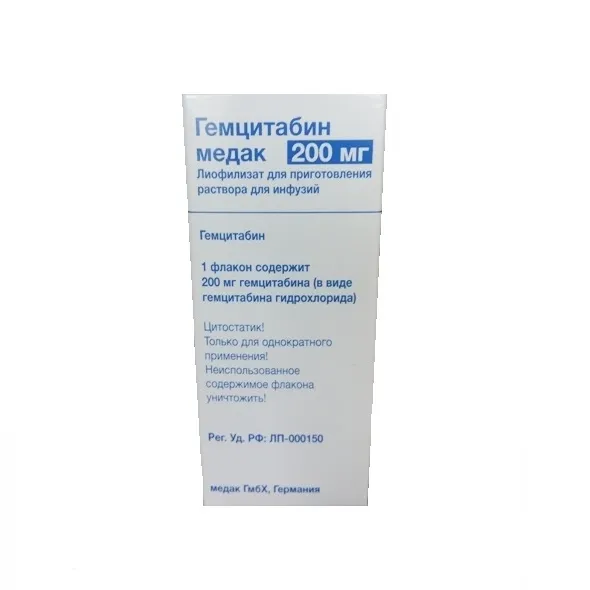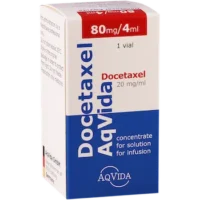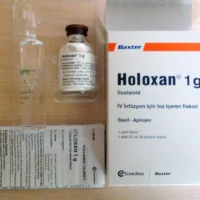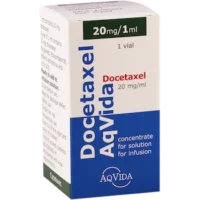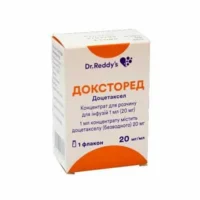Description
Gemcitabin Medak Powder for Infusions 200 mg Vial №1
Ingredients:
Gemcitabine hydrochloride is the active ingredient in Gemcitabin Medak powder for infusions 200 mg vial №1.
Mechanism of Action:
Gemcitabine inhibits DNA synthesis in cancer cells by disrupting the cell replication process, leading to cell death. This mechanism is crucial in its anti-cancer effects.
Pharmacological Properties:
As a nucleoside analog, gemcitabine interferes with DNA synthesis, thereby exerting cytotoxic effects on rapidly dividing cancer cells. Its pharmacokinetics involve rapid intracellular metabolism to active diphosphate and triphosphate forms.
Indications for Use:
- Gemcitabin Medak is indicated for the treatment of pancreatic cancer.
- It is also effective in the management of lung cancer and breast cancer.
Contraindications:
Gemcitabin Medak is contraindicated in patients with a known hypersensitivity to gemcitabine or any component of the formulation. Caution is advised in patients with compromised renal function.
Side Effects:
Common side effects of Gemcitabin Medak include nausea, vomiting, fatigue, myelosuppression, and flu-like symptoms. Patients may also experience peripheral edema and neuropathy.
Usage Instructions:
Gemcitabin Medak should be administered intravenously by healthcare professionals trained in chemotherapy administration. Dosage and infusion rate should be determined based on the patient’s body surface area and renal function.
Benefits Compared to Analogues:
Gemcitabin Medak offers a well-established efficacy profile in various cancers with manageable side effects compared to other chemotherapeutic agents. Its mechanism of action provides targeted cytotoxicity, enhancing treatment outcomes.
Suitable Patient Groups:
Gemcitabin Medak is suitable for adult patients with advanced or metastatic cancers who have failed conventional therapies. Dosing adjustments may be necessary for elderly patients or those with renal impairment.
Storage and Shelf Life:
Gemcitabin Medak should be stored at controlled room temperature away from light and moisture. The shelf life of the product is typically two years from the date of manufacture.
Packaging Description:
Gemcitabin Medak powder for infusions 200 mg vial №1 is supplied as a single-dose vial for intravenous administration. Each vial contains lyophilized gemcitabine hydrochloride for reconstitution prior to use.

